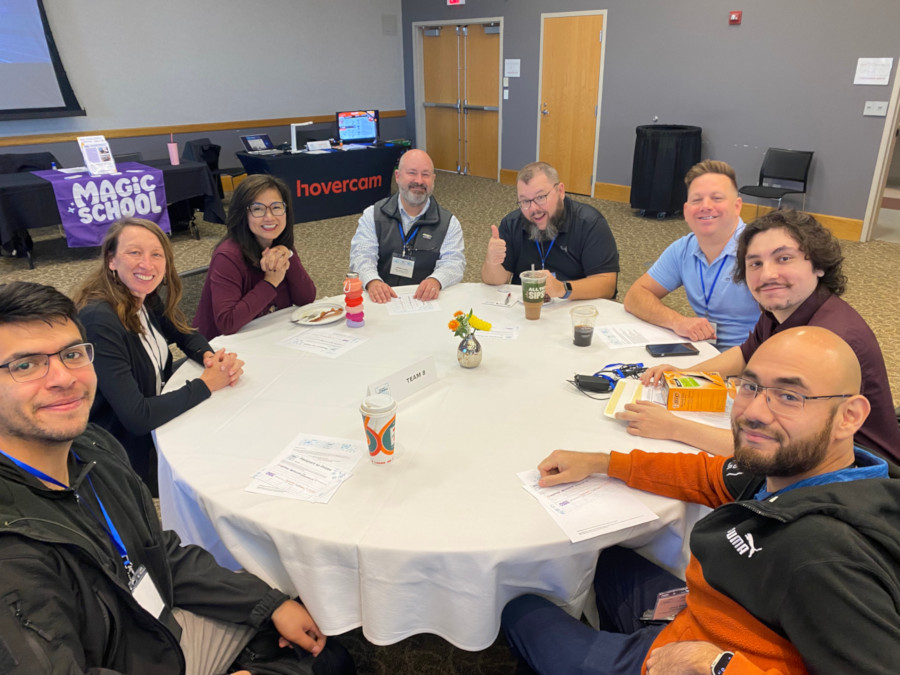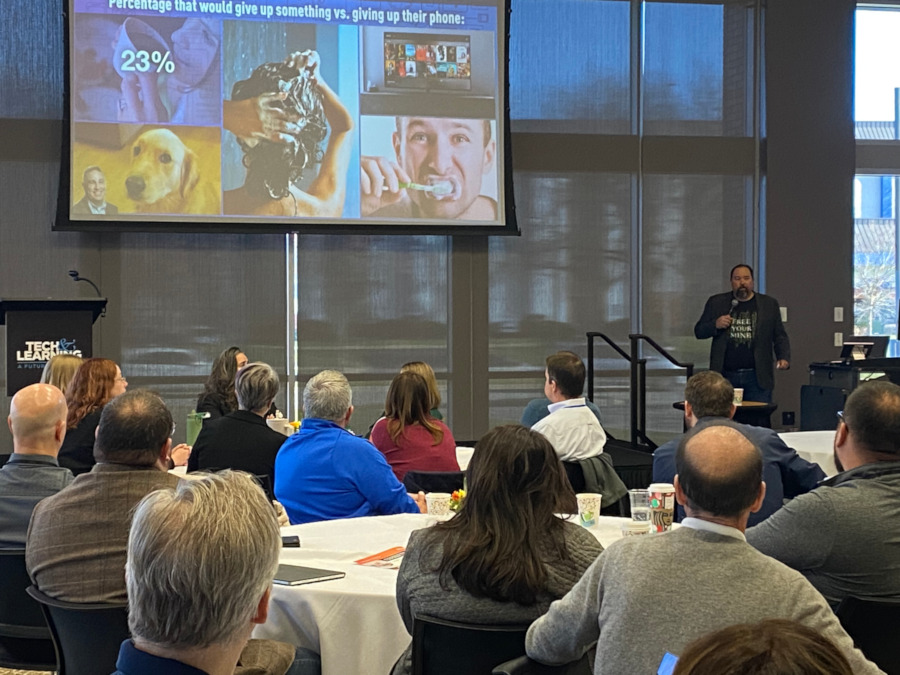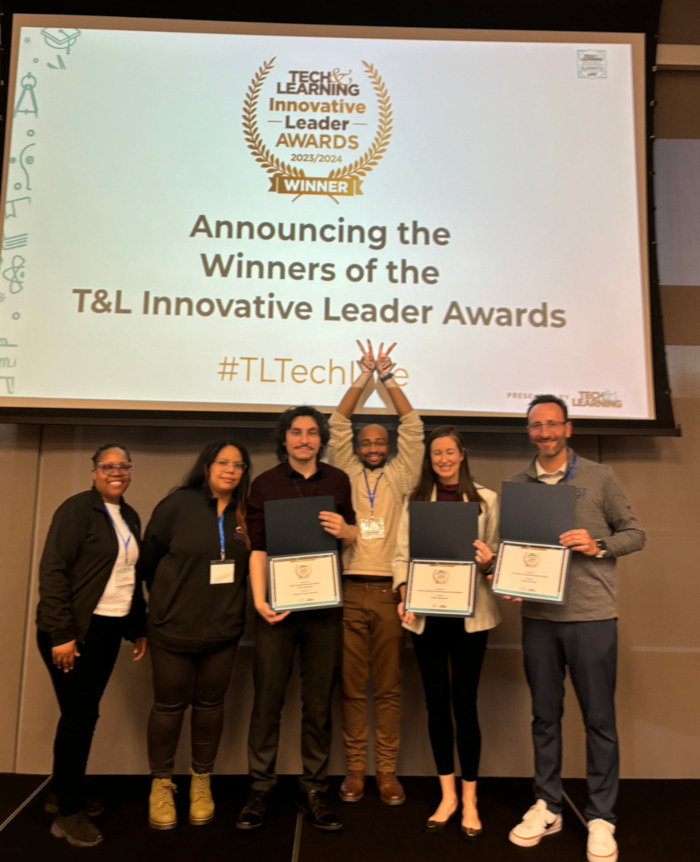Midwest 2024: Regional Leadership Summit Report
Bringing together district leaders and service agencies for a deep dive into what it means to teach in the age of AI.

The recent Tech & Learning Regional Leadership Summit at the NIU Naperville Conference Center just outside of Chicago was focused on preparing the next generation workforce. It brought together area district administrators and service agencies who took a deep dive into what it means to teach in the age of AI.
District leaders worked in teams to explore how emerging tech has impacted teaching and learning, including how to vet tools, assess data privacy risks, and prepare staff and students for the Generative Age.
Find information about upcoming Tech & Learning Leadership Summits here.
Key Takeaways

1. ANTIDOTES FOR THE ANXIOUS GENERATION
During his opening keynote, Carl Hooker discussed whether or not to ban cell phones in the classroom. He also addressed the need for educators to be equipped with strategies to address student anxiety through mindfulness, social-emotional learning (SEL) techniques, and effective classroom management.
For example, one strategy revolves around notification awareness, and helping students learn to silence and/or regulate what they get notified about on their phones, which can directly help with their focus, especially when they are working, collaborating, or being productive. Discussing this with students helps them create more proactive solutions to their own focus. Do they need to get notified about the group Snapchat or can it wait until after school? What things do they need to be notified about right away? What happens to learning when they get distracted? Reflecting on these and other questions can be the first step in addressing the problem.
See all seven of Hooker’s antidotes for the anxious generation here.
Tools and ideas to transform education. Sign up below.
2. ESPORTS WINNING IMPACT
During his presentation, “Scholastic Esports: More Than Just Gaming,” John Phillips, Technology & Innovation Consultant for Berrian RESA, discussed the far-reaching impact of scholastic esports.
Phillips explained how esports equips students with far more skills than just gaming. He cited research that showed that esports can help:
- Improve visual acuity and attention
- Foster scientific reasoning
- Accelerate language learning
- Improve digital and print literacy
- Increase problem-solving skills
- Boost math achievement
- Build technology fluency
He cited dozens of career paths that launch from esports experience, including business, IT, sales & marketing, education, event management, communication & media and more.
Phillips also noted that the average esports scholarship student receives $4,800 in tuition awards a year, according to the National Association of Collegiate Esports—but some can receive up to half off tuition.
Phillips works with the North American Scholastic Esports Federation (NASEF), a nonprofit that offers free esports tournaments and more to help students develop STEAM-based, collaboration, and problem-solving skills they need to thrive in work and in life.
3. BUILDING ENGAGEMENT AND EQUITY
Attendees from Chicago Public Schools discussed Chi-Craft, the district’s esports afterschool Minecraft Build Challenge program. Inspired by New York City Public Schools’ “Battle of the Boroughs", the new program features more than 500 students from 70+ schools, and unlike some other extracurricular programs and activities that can require certain physical abilities and skills, every student is eligible to participate.
Using Minecraft Education, the competition involves “Build and Present Challenges” that are scored with a STEM-powered rubric. Students essentially receive a 3D creative writing prompt that includes key focus vocabulary and Chicago-centered resources. In return, they create innovative architecture, beautiful murals, and constructs from “out of this world.”
Innovative Leader Award Winners

At the close of the Tech & Learning Leadership Summit, the following leaders were recognized for their outstanding work in their districts:
- Innovative Technology Director - Greg Reichelt, Director of Technology, Maine Township HSD 207
- Best Example of Professional Development - Callie Salaymeh, Instructional Technology Coach, Lyons Township High School District 204
- Innovative Superintendent - Travis McGuire, Assistant Superintendent for Learning, Community High School District 99, Downers Grove, Illinois
- Best Overall Implementation of Technology - Chicago Public Schools, Chi-Craft Esports Competition
Special thanks to our partners who made these important conversations possible:
Apptegy
D2L
ClassLink
IncidentIQ
MagicSchool
Wonder Workshop
Hovercam
Stride Learning Solutions
Tinkrworks
Find information about upcoming Tech & Learning Leadership Summits here.
